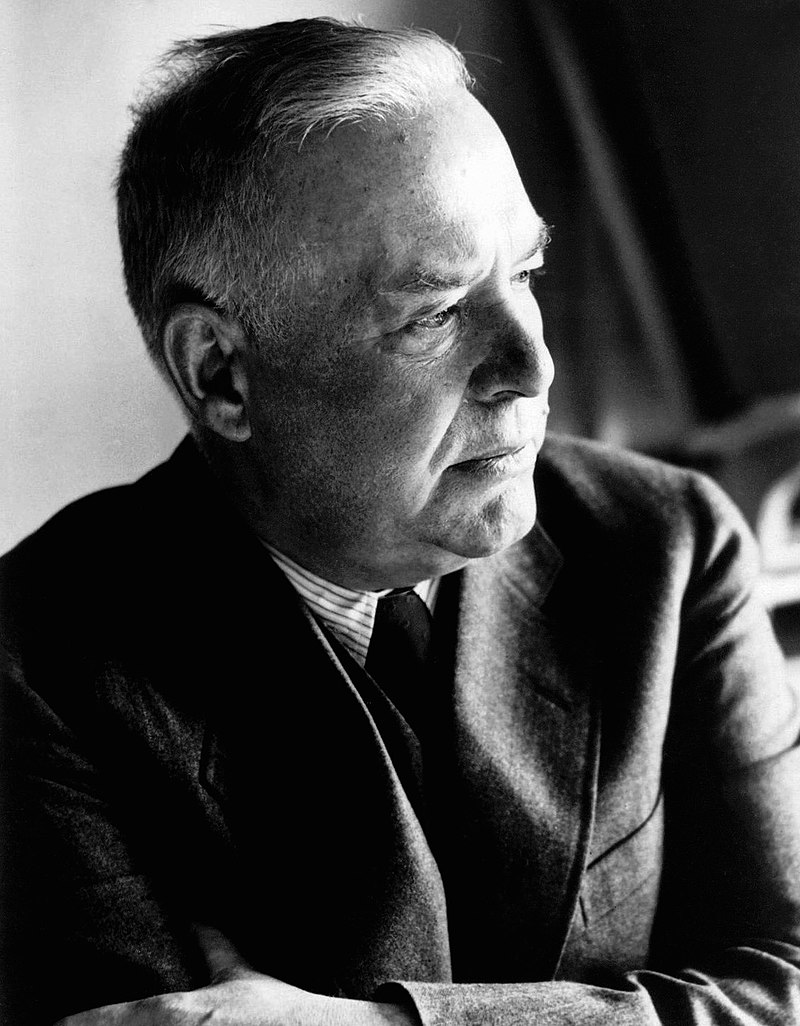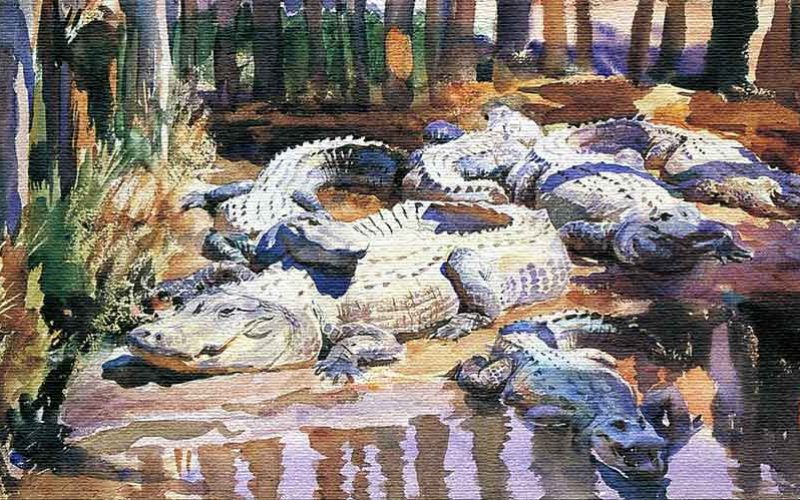“I prefer to think I’m just a man, not a poet part time, business man the rest…I don’t divide my life, just go on living.”
In another article, I introduced fifteen late bloomers who detoured to law school before pursuing their creative impulses. The diverse group included:
- literary heavy-hitter Goethe,
- songwriter Hoagy Carmichael,
- comedian John Cleese and
- New York Times bestseller Gretchin Rubin.
One of the fifteen, however, practiced law to the end. Right before his death at age 75, he won the Pulitzer Prize for Poetry while serving as Vice President of The Hartford Group.
How did Wallace Stevens (1879-1955) reconcile this double life?
He didn’t.
“It gives a man character as a poet to have this daily contact with a job,” Stevens once told a newspaper reporter.
Wallace Stevens, Insurance Lawyer
Wallace Stevens was born in Reading, Pennsylvania, the son of a prosperous lawyer. Like many late bloomers, he skimmed through high school. One semester he’d pull perfect grades, the next he’d flunk out. He had to repeat his freshman year.
But he flourished later when given the freedom to pursue his own agenda.
Stevens’s poor grade point average excluded him from college. But Harvard accepted him as a “special student” (meaning they’d take his father’s money and let him attend classes, but he couldn’t earn a degree). He soon outshone his peers, especially in writing. As a junior, he became president of Harvard Advocate, the undergraduate literary magazine.
Many articles report that Stevens’s brilliance allowed him to graduate early. Not so. He withdrew for financial reasons. His father lost money in the stock market and his once-lucrative law business flailed. He couldn’t afford to let Wallace hang around Harvard as a “special student” anymore.
Stevens decamped to New York with vague literary ambitions and ended up writing for the New York Tribune. That lasted nine months.
Finally, unable to make a living as a writer, he followed his father’s advice and entered law school. Stevens passed the bar in 1904. On the way back home, he met a girl on the train, “the prettiest girl in Reading,” Elsie Kachel. They married five years later after he’d established himself.
Stevens spent the next several years moving from firm to firm. In 1916, at age 35, he joined The Hartford Group (where he’d spend the rest of his professional life) as an insurance lawyer. Perhaps not coincidentally, he began writing again.
Wallace Stevens, Modernist Poet
In 1923, at age 44, he published his first poetry collection, Harmonium. His only daughter, Holly, was born a year later. (Holly edited and published her father’s correspondence after his death.)
Stevens spent the next eleven years climbing the corporate ladder and caring for his family. In 1934, The Hartford Group made him Vice President. Two years later, at age 57, he published his second poetry collection, Ideas of Order.
Finally secure in his career, Stevens became a prolific poet. But he didn’t gain popular recognition until in his seventies when he won The National Book Award (twice). At age 75, he won the Pulitzer Prize for Poetry.
After he won the Pulitzer, Harvard offered him a faculty position. He declined, with good reason.
He would have to resign from The Hartford, and he finally had it cushy. Stevens adored good food and Cuban cigars. He built an extensive wine cellar, collected antiques and leather-bound books—the things an affluent lawyer could afford. He knew what he wanted in life, and took a little longer to have it all. Apparently, his boss didn’t even know he was a poet.
Stevens never learned to drive. He wrote his poems in his head during the five-mile round trip walk, scribbled them on notepaper, and had his secretary type them. (Ah yes, this was the ’40s and ’50s.) But to be fair, Stevens suffered from blurred vision and took three medicines for his eyes.
A few years ago, “The Hartford Friends (and Enemies) of Wallace Stevens” created the Wallace Stevens Walk, which follows Stevens’s daily 2.4-mile route from his home to his office.

Wallace Stevens, Drunken Brawler
Between 1922 and 1940, Stevens traveled to Key West, Florida for a winter solo “writing retreat.” On one of these trips, he got into a brawl with the young Ernest Hemingway. Stevens trashed Papa’s writing, then broke his hand on Papa’s jaw. Hemingway whaled on him and walked away unscathed.
Another time, after a few too many martinis, Stevens invited Robert Frost to dinner, then insulted his poetry. Stevens certainly wasn’t perfect.
Wallace Stevens, Master of Images
Stevens is a Modernist poet, like T.S. Eliot, Ezra Pound, William Carlos Williams, and Hilda Doolittle (“HD”). He describes images in glorious abstraction, but he doesn’t always make you feel them. Here are two views of his work:
- “Stevens’ poems are sometimes difficult to understand because he sees more than we thought there was to see.”
- “From one end of the book to the other there is not an idea that can vitally affect the mind, there is not a word that can arouse emotion.”
I’m not a fan of modernist poetry (except T.S. Elliott’s). I too find Stevens difficult. But I want to share one poem with you, so you can get a feel for this insurance lawyer many critics consider one of America’s best modernist poets.
My favorite (inspired by Stevens’s Key West trips), but not considered one of his “masterpieces”:
Nomad Exquisite
As the immense dew of Florida
Brings forth
The big-finned palm
And green vine angering for life,
As the immense dew of Florida
Brings forth hymn and hymn
From the beholder,
Beholding all these green sides
And gold sides of green sides,
And blessed mornings,
Meet for the eye of the young alligator,
And lightning colors
So, in me, come flinging
Forms, flames, and the flakes of flames.
I love that last line: “So, in me, come flinging forms, flames and the flakes of flames.”
Isn’t that what later blooming is all about? Passions taking shape chaotically (or so it may seem), yet burning bright.
[Opening Image: Muddy Alligators, 1917, by John Singer Sargent. Thanks to Karen Eade for supplying the link.]
